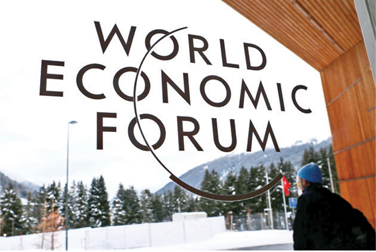Will the world economy tank this year?
by Dinesh Weerakkody
In the first two weeks of the year unlike over the past few years we
saw foreign-exchange volatility jump the most in a month as Chinese
stock markets plunged and tension escalated in the Middle East.
According to Morgan Stanley swings like this will persist after
averaging the most in four years in 2015. While a Deutsche Bank AG
official sees a 'minor retreat' in volatility, he says more turmoil may
come from China and rising US interest rates. Therefore, 2016 is
certainly turning out to be a very difficult year for all foreign
exchange managers and for Central Banks of emerging markets.
 According to currency speculators, the EUR/USD is unlikely to
depreciate rapidly, despite all arguments in favour of a strong dollar
and a weak euro. The Fed would likely react to an overshooting of the
dollar, while Mario Draghi and the ECB are tempering expectations of
large-scale asset purchasing this year. In the light of this, analysts
say only a very moderate downtrend in EUR-USD is likely. However, the
firmer dollar could draw capital into the US from the European Union
creating problems for some of the weaker currencies. According to currency speculators, the EUR/USD is unlikely to
depreciate rapidly, despite all arguments in favour of a strong dollar
and a weak euro. The Fed would likely react to an overshooting of the
dollar, while Mario Draghi and the ECB are tempering expectations of
large-scale asset purchasing this year. In the light of this, analysts
say only a very moderate downtrend in EUR-USD is likely. However, the
firmer dollar could draw capital into the US from the European Union
creating problems for some of the weaker currencies.
Low energy prices continue to put pressure on consumer prices in the
UK, and as a result the Bank of England revised its inflation outlook
downwards in November. Market participants have drawn their own
conclusions and have postponed their expectation of a first rate hike
well into 2016. However, it is possible the Bank of England will follow
any Federal Reserve move and hike rates as early as May, pushing the EUR/STG
pair lower in the new year.
Crude oil
The slump in oil prices, stemming from OPEC's recent reluctance to
come to an agreement to cut output, has triggered risk aversion across
the world. The Bloomberg Commodity Index has slipped below 80 for the
first time in nearly 17 years.
As expected, market participants have sold risk assets and bought
debt. Global indices have been severely hit, with many of the majors,
including the S&P, now down on the year. Low crude prices are helping
Saudi Arabia's plan to expand its market share by forcing out the US
shale producers and the Russians.
Therefore, the lower-for-longer oil prices are here to stay. This
means the global inflation outlook continues to look subdued, which will
complicate the Central Bank policies of many economies. However, it will
help many of the unprofitable airlines the space to restructure.
2016 and beyond
There may be high high asset volatility this year with
central-bank-policy divergence, an expensive US dollar becoming even
more expensive and political uncertainties acting as the catalyst.
According to Hans Redeker, head of global foreign-exchange strategy
at Morgan Stanley in London, "Volatility will be the name of the game,
and the very first trading day of this year provides us with a taste of
what to expect."
The Federal Reserve might have finally raised interest rates thanks
to lower unemployment, but there's no doubt much of the US public still
feels the effects of the long recession the country endured, apart from
the global economic risks, ranging from China's slowing growth to
terrorism threats in the Middle East and beyond.
Given the many risks involved, the world economy can certainly tank
this year. If this happens there is the chance of another prolonged
recession that can certainly impact countries such as Sri Lanka
negatively.
The writer is a senior company director. |

